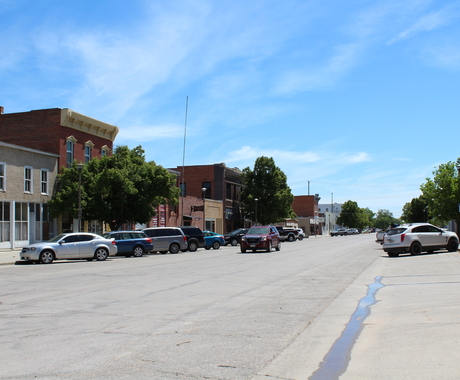By Jordan Feyerherm, former staff member
At the Center for Rural Affairs, one of our guiding principles is to promote vibrant rural communities and the people who live here. A cornerstone of any community is safety, stability, and trust.
On Aug. 8 in O'Neill, Nebraska, that sense of community was shaken when 133 agricultural workers were taken from their places of employment and transferred to a detention center more than 100 miles away in Grand Island, leaving their families and children to wonder if their loved ones would ever return.
In 2013, the Center for Rural Affairs Board of Directors called on Congress to act on comprehensive immigration reform. Our call for action was four-part:
- An opportunity for undocumented immigrants who fulfill the requirements for obtaining citizenship to remain in the U.S. as citizens.
- A more robust process for legal immigration that shortens the timeline and waiting list for legal immigration and creates clear avenues for future immigrants.
- Practical and appropriate limits as determined by an independent commission on the number of manually skilled workers allowed to immigrate legally each year.
- More effective enforcement of existing wage and labor laws and of the prohibition on hiring undocumented immigrants and falsely classifying them as independent contractors.
Because policymakers have failed to act, too many workers remain trapped in limbo, leaving themselves and their families in insecure and dangerous situations. These are the preconditions that led to the raid in O’Neill, Nebraska.
A silver lining in this humanitarian emergency is the outpouring of support and love shown to those affected. As soon as people became aware of the raid, the community, as well as state and national organizations, stepped up to provide assistance. O’Neill Public Schools opened their doors to provide counselors to affected children, and school employees opened their homes to children who were separated from their parents. Local churches were quick to provide a safe haven to those who were too scared to return home, and provided those affected with what comfort they could. Systems were put into place to provide direct aid and advice on how to reconnect with their loved ones.
The Center for Rural Affairs joined individuals from Heartland Workers Center, Centro Hispano, the Multicultural Coalition, the American Civil Liberties Union (ACLU), Nebraska Appleseed, Lutheran Family Services, Immigrant Legal Center, and many more, in O’Neill to assist with legal aid, immigration assistance, trauma counseling, logistic support, and any other need that presented itself. Local businesses provided furniture, bedding, basic necessities, hot meals, toys, and even school supplies for the children getting ready to enter the new school year.
Through the actions of the community members rallying together to support their own in a time of need, we can see rural values and love for their neighbors in action.
Unfortunately, however, the damage is done. When individuals in vulnerable populations fear interaction with those tasked to enforce the law, they are put in an even more vulnerable position.
In 2015, the President’s Task Force on 21st Century Policing determined, “Trust between law enforcement agencies and the people they protect and serve is essential in a democracy. It is key to the stability of our communities, the integrity of our criminal justice system, and the safe and effective delivery of policing services.”
Families, children, parents, spouses… the community as a whole has experienced a deep trauma. Trauma takes time to heal, but it also requires safety, stability, and trust. Trust that families will not be broken up and separated by force, stability to know that a goodbye is not forever, and the safety to call the community you live in “home.”





